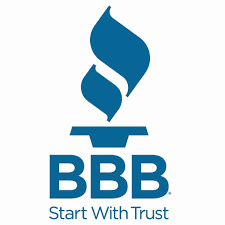BBB: FTC releases top 2024 frauds and reports record losses
Published 5:50 pm Tuesday, March 25, 2025
The Federal Trade Commission’s (FTC) Consumer Sentinel Network is a database that receives reports directly from consumers, as well as from federal, state, and local law enforcement agencies, Better Business Bureau, industry members, and non-profit organizations. More than 20 states contribute data to Sentinel.
BBB is proud to be a longstanding contributor to the Consumer Sentinel Network, as the information aids in the FTC’s analysis of fraud trends and their comprehensive approach to detect, halt, and deter consumer fraud.
Freshly unveiled data from FTC reveals that consumers were swindled out of more than $12.5 billion in 2024 — a staggering new record that represents an increase of 25% over 2023 losses.
The number of fraud reports hasn’t increased, but the percentage of fraud reports that came from individuals with financial losses grew tremendously — with 38% of people reporting losses versus 27% in 2023.
Investment scams topped the list of frauds with the highest reported financial losses – $5.7 billion in 2024. Consumers reported losses of $2.95 billion to impostor scams in 2024, with government imposter scam related losses soaring by more than 600% from $171 million into $789 million in just the past year.
Your BBB offers tips to help you recognize and avoid these frequently reported frauds:
Seven red flags of cryptocurrency investment scams:
- Deals involving little-known cryptocurrencies
- Requests to share your cryptocurrency wallet with someone you don’t trust completely
- Strategies offering “guaranteed” returns
- An investment that takes little effort or time to pull off
- Someone offering their secret strategy and discourages your research into their claims
- Too-good-to-be-true claims
- A stranger who suddenly wants to befriend you
Five tips to avoid impostor scams:
- Verify directly with the agency. If someone claims to be from a government agency, contact the agency using its official website or phone number to verify if they have attempted to reach you. Never use the contact information provided by the caller or emailer.
- Know how government agencies operate. Legitimate agencies like the IRS and Social Security Administration will not demand immediate payment, threaten arrest, or ask for sensitive information over the phone, email, or text.
- Beware of unusual payment methods. Requests for payment via gift cards, cryptocurrency, or peer-to-peer payment apps are a clear sign of a scam.
- Protect your personal information. Avoid sharing sensitive details like Social Security numbers, bank account details, or passwords unless you initiated the contact with a verified agency.
- Check email extensions. Official government correspondence usually comes from “.gov” or “.mil” addresses. Messages from Gmail, Yahoo, or similar domains claiming to be government-related are scams.
If you’ve been victimized by fraud, you can report your experience with the FTC at ReportFraud.ftc.gov or by calling 1-877-FTC-HELP (1-877-382-4357) and the FBI’s Internet Crime Complaint Center (IC3) at IC3.gov. We hope you’ll also share information on BBB’s Scam Tracker Page at bbb.org/scamtracker to keep others aware of the types of fraud targeting our community.
Kelvin Collins is president & CEO of the Better Business Bureau serving the Fall Line Corridor, serving 77 counties in East Alabama, West Georgia, Southwest Georgia, Central Georgia, East Georgia and Western South Carolina. This tips column is provided through the local BBB and the International Association of Better Business Bureaus (IABBB). The Better Business Bureau sets standards for ethical business behavior, monitors compliance and helps consumers identify trustworthy businesses. Questions or complaints about a specific company or charity should be referred directly to the BBB at Phone: 1-800-763-4222, website: BBB.org or email: info@centralgeorgia.





